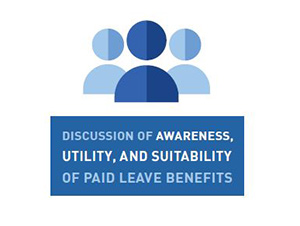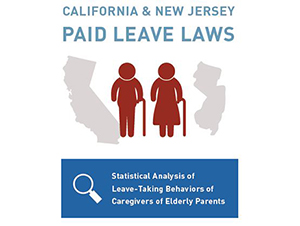Many state and local governments have paid leave policies for workers, particularly for parents of newborn children, and the federal government’s Family and Medical Leave Act (FMLA) provides for job-protected unpaid family leave. The policies differ across states in terms of who is covered, for what purpose (e.g., parents caring for a newborn, or adults caring for a sick or elderly family member), whether the worker’s job is protected, the maximum length of time or benefit amount workers may receive and how leave programs are funded. The Chief Evaluation Office (CEO) has initiated several research and evaluation projects to examine worker leave programs. These analyses examine various types of paid and unpaid leave programs, including FMLA, state leave, employer/firm leave, and temporary disability leave, and determine how different programs affect individuals’ labor force activity, employment, earnings, and household income. A selection of the CEO studies are presented on this web page, and other reports will be added as studies are completed, including results of microsimulation statistical modeling to analyze the likely effects of different leave policies.
Reports

California's Paid Family Leave Law: Lessons from the first decade. View the Report.

Assessing Rhode Island's Temporary Caregiver Insurance Act: Insights from a survey of employers. View the Report.

Paid Family Leave, Fathers' Leave Taking, and Leave-Sharing in Dual-Earner Households. View the Report.
Briefs

Discussions with Parents and Caregivers in California, New Jersey and Rhode Island. View the Brief.

The effects of paid leave on caregivers of elderly parents. View the Brief.
Links and Other Resources
- Family and Medical Leave Act Survey in 2012
- DOL Paid Leave page
- Please see the Research Gaps page for additional research ideas to consider for your evaluation projects.
- To increase the literature on policies that would better serve this population, consider conducting a series of small focus groups using OMB clearance to mindfully recruit caregivers by illness/disability, employment status, and whether they have taken paid leave. The purpose of this research would be to understand the differences between various segments within the caregiver population when it relates to utilization, and perceived barriers and benefits.
